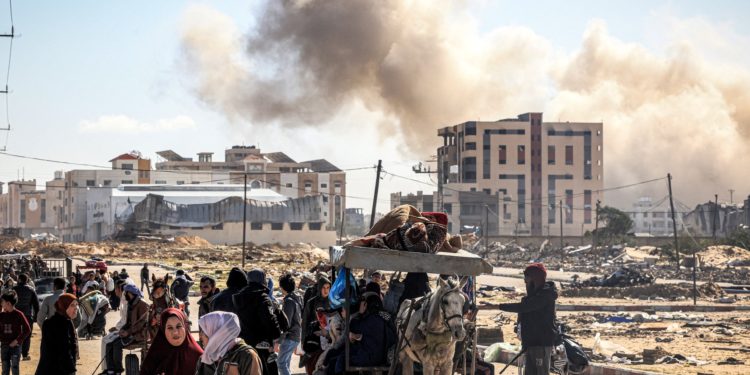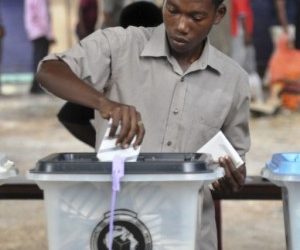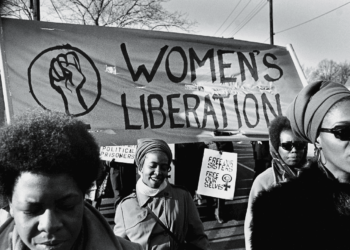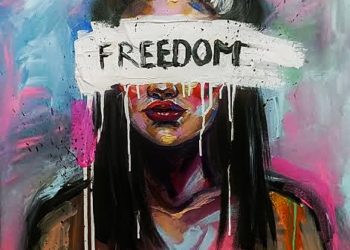By AL JAZEERA
If you have been following Western media to try to make sense of the heartbreaking images and stories coming out of Gaza during Israel’s invasion, you are bound to be disappointed.
Since the beginning of the latest Israeli assault on the besieged Palestinian enclave – which is proving to be one of the swiftest ethnic cleansing efforts in history – Western news organisations have repeatedly published unsubstantiated claims, told one side of the story and glossed over violence selectively to justify Israel’s violations of international law and shield it from scrutiny.
In doing so, Western journalists have abandoned basic standards in their coverage of Israel’s conduct towards Palestinians. None of this is new. The failures of Western journalism have helped Israel justify its occupation and violence against Palestinians for over 75 years.
On August 6, 2022, more than a year before Hamas’s October 7 attack on Israel, in a particularly egregious break from good journalism, The New York Times buried the lede on the deaths of six Palestinian children in its report on a “flare” in “Israel-Gaza fighting”.
In the report, the journalists waited until the second paragraph to mention that six children were among those killed by Israeli strikes in the Jabalia refugee camp in Gaza and without even breaking the sentence added that “Israel said some civilian deaths were the result of militants stashing weapons in residential areas” and “in at least one case, a misfired Palestinian rocket killed civilians, including children, in northern Gaza”.
In journalism schools this is identified as “breathless” reporting. And it turned out to be wrong reporting too. Ten days later, the Israeli military finally admitted that it was behind the strikes that killed those children in Jabalia.
The New York Times did not report this bit as breathlessly.
I could call it unprofessional – which would be true as the coverage of this conflict in Western media has clearly been shaped by ideology rather than rigorous fact-checking. Such an assessment, however, would gloss over a deeper, more profound problem within Western journalism: coloniality.
Conflict reporting is one of the most hyper-colonised corners of the world’s largest newsrooms. Even in racially diverse newsrooms, reporting on conflicts can be tricky. But the egregious errors that appear to get past editorial filters in newsrooms that take pride in the accuracy of their conflict reporting needs to be accounted for. It also needs to be put on record that, with these consistent errors, Western journalists are “mediating” the conflict in Palestine, not simply reporting on it.
I would be mincing my words if I do not call it what it is: a textbook case of coloniser’s journalism. It is journalism done by practitioners from colonising countries who take pride in their imperial conquests and have an elevated sense of self, every fibre nurtured by centuries of predatory accumulation of wealth, knowledge and privilege. These journalists seem convinced that their countries have fought and defeated particularly immoral and powerful enemies throughout history, stopped evil in its tracks, protected civilisation, saved the day. This is the dominant story of the West and by extension, the story of Western journalism too.
However, the dominant story is often not the true story – it is merely the story of the victors.
And today, Western media are once again telling the story of the victors in Gaza, like they did countless times before in their coverage of conflicts, crises and human suffering in post-colonial nations.
I’ve seen this in the coverage of tropical diseases by reporters who know malaria, dengue or Ebola will never course through their veins or affect their communities. I’ve seen it after the Rohingya genocide when genocide survivors were asked whether they had been “held down by five men or seven” as they were gang-raped.
Western journalism is, at its very core, journalism of the victor – it never attempts to deconstruct stories, put them in the right order or add relevant context to speak truth to power and expose the continuing excesses, aggression and violence of the “victors” of history.
And when it comes to Palestine, it is journalism about occupation by people who will never know what it feels like living under occupation. It is voyeuristic reporting without a moral compass or a bedrock sense of decency.
In coloniser’s journalism, language is a weapon that is used to erase the humanity of the colonised. In The Wretched of the Earth, in which he analysed the dehumanising effects of colonisation, philosopher Frantz Fanon wrote of Algerian suffering (during France’s imperial conquest) as being depicted in media reports as “hordes of vital statistics” about “hysterical masses” with “children who seem to belong to nobody”. The book was written in 1961, but its inferences apply perfectly to the Western media coverage of Palestinian suffering today.
This dehumanising use of language has been most visible in the counting of deaths. In early November, The Times of London noted, “Israelis marked a month since Hamas killed 1,400 people and kidnapped 240, starting a war in which 10,300 Palestinians are said to have died”. In Western news, Israelis die in active voice – Hamas “killed” or “murdered” them – while Palestinians die passively. They “dehydrate to death as clean water runs out” as the Guardian once put it, as if this is not a wilful crime against humanity but a random act of God.
According to the propaganda machine of the West, Israel has the right to destroy Gaza, the West Bank, East Jerusalem, Iran, Lebanon, Yemen and any other country in the region to keep Israelis safe. It can kill nearly every Muslim, Jews asking for a ceasefire, UN staff and physicians in Doctors Without Borders (Medecins Sans Frontieres, or MSF), journalists, ambulance drivers and even babies in the process of targeting Hamas. Yet few news organisations ever discuss what it means for Israel and the world, if the only way it can feel secure is by raining death and misery on millions of people. None of them – for there is now an “us” and “them”, a divided world of the colonised and the colonisers – ever meaningfully questioned whether a victory achieved at the expense of the lives of thousands of innocent children can ever be considered a victory in the first place.
In this slick propaganda of war, Western journalists are obscuring the true story we are faced with here – that Israel, backed by the most powerful military in the world, is waging war on a stateless people living under its occupation and pulverising innocent men, women and children in their thousands. The story that Western governments have been enabling this carnage while lecturing the world about their superior values, decency and love for democracy. Anyone living in the post colonial world knows that their talk of decency and love for democracy and exceptional journalism and decent politicians – it is all but a swindle.
At this late hour, as war rages and children starve and Israel is tried for “plausible genocide”, it is crucial to point at the blood in the hands of Western journalists. They have, in perfect coordination with their powerful governments, maligned and disempowered multilateral institutions like the United Nations, gave Israeli narratives of “self-defence” a veneer of respectability, and drove Palestinian stories and perspectives into irrelevance.
The few Palestinians who were given a platform – in the name of “balance” and good journalism – were discouraged from discussing the decades of oppression, occupation and abuse they endured at the hands of Israel. They were allowed merely to weep for their dead relatives and beg for more aid to feed their starving children – after condemning Hamas, of course.
Perhaps with this war, the game is finally up for Western journalism. As they watch Israel’s war on Gaza on their social media feeds and see what is happening with their own eyes through the reports and testimonies of Palestinians themselves, more and more people around the world are recognising Western media’s role in perpetuating colonial power, its language and ideologies.
These days there is growing criticism of how Western leaders have failed, but not nearly enough is being said about how the Western intelligentsia, and especially those leading the West’s most influential newsrooms, have also failed. It’s not just Western liberalism and rules-based order that has been reduced to rubble as a result of Israel’s war on Gaza, but the legitimacy of Western journalism.
In their coverage of the Gaza war, Western news organisations demonstrated clearly that they view mass death, starvation and limitless human misery as acceptable and even unavoidable when it is inflicted by their allies. They showed that conflict journalism, as practiced in Western newsrooms, is nothing but another form of colonial violence – one that is realised not with bombs and drones, but words.
In this moment of overwhelming barbarity, journalists of colour like me are whiplashed by the the monumental amorality of the newsrooms that we are told to look up to. The least Western journalists, with their significant power, could do at this moment is demand a permanent ceasefire and spare us yet another instalment of coloniser’s journalism.
The views expressed in this article are the author’s own and do not necessarily reflect Al Jazeera’s editorial stance.








Discussion about this post